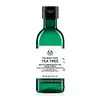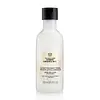What's inside
What's inside
 Key Ingredients
Key Ingredients

No key ingredients
 Benefits
Benefits

 Concerns
Concerns

 Ingredients Side-by-side
Ingredients Side-by-side

Water
Skin ConditioningAlcohol Denat.
AntimicrobialTapioca Starch Polymethylsilsesquioxane
AbsorbentCaprylyl Glycol
EmollientPEG-40 Hydrogenated Castor Oil
EmulsifyingHamamelis Virginiana Water
AstringentGlycerin
HumectantSalix Alba Bark Extract
AstringentMelaleuca Alternifolia Leaf Oil
AntioxidantAlcohol
AntimicrobialAllantoin
Skin ConditioningCalophyllum Inophyllum Seed Oil
AntimicrobialSodium Hydroxide
BufferingLimonene
PerfumingCitral
PerfumingCitronellol
PerfumingLeptospermum Petersonii Oil
MaskingCaramel
Cosmetic ColorantCI 19140
Cosmetic ColorantCI 42090
Cosmetic ColorantWater, Alcohol Denat., Tapioca Starch Polymethylsilsesquioxane, Caprylyl Glycol, PEG-40 Hydrogenated Castor Oil, Hamamelis Virginiana Water, Glycerin, Salix Alba Bark Extract, Melaleuca Alternifolia Leaf Oil, Alcohol, Allantoin, Calophyllum Inophyllum Seed Oil, Sodium Hydroxide, Limonene, Citral, Citronellol, Leptospermum Petersonii Oil, Caramel, CI 19140, CI 42090
Water
Skin ConditioningPropanediol
SolventButylene Glycol
HumectantSesamum Indicum Seed Oil
EmollientPhenoxyethanol
PreservativeCaprylyl Glycol
EmollientParfum
MaskingAcrylates/C10-30 Alkyl Acrylate Crosspolymer
Emulsion StabilisingPropylene Glycol
HumectantTrisodium Ethylenediamine Disuccinate
Panax Ginseng Root Extract
EmollientLimonene
PerfumingSodium Hydroxide
BufferingCitral
PerfumingCitronellol
PerfumingLinalool
PerfumingEugenol
PerfumingDextrin
AbsorbentOryza Sativa Extract
AbsorbentWater, Propanediol, Butylene Glycol, Sesamum Indicum Seed Oil, Phenoxyethanol, Caprylyl Glycol, Parfum, Acrylates/C10-30 Alkyl Acrylate Crosspolymer, Propylene Glycol, Trisodium Ethylenediamine Disuccinate, Panax Ginseng Root Extract, Limonene, Sodium Hydroxide, Citral, Citronellol, Linalool, Eugenol, Dextrin, Oryza Sativa Extract
 Reviews
Reviews

Ingredients Explained
These ingredients are found in both products.
Ingredients higher up in an ingredient list are typically present in a larger amount.
Caprylyl Glycol is a humectant and emollient, meaning it attracts and preserves moisture.
It is a common ingredient in many products, especially those designed to hydrate skin. The primary benefits are retaining moisture, skin softening, and promoting a healthy skin barrier.
Though Caprylyl Glycol is an alcohol derived from fatty acids, it is not the kind that can dry out skin.
This ingredient is also used as a preservative to extend the life of products. It has slight antimicrobial properties.
Learn more about Caprylyl GlycolCitral is a fragrance and used to add a lemon-like scent to products. It is both naturally found in plants and created synthetically. In plants, it is commonly occurring in lemon myrtle, lemongrass, lemon tea-tree, lemon verbena, and other citruses.
The EU mandates Citral be listed separately as a fragrance. It is a known allergen and may cause contact dermatitis. Citral can also used as a masking ingredient.
The term 'fragrance' is not regulated in many countries. In many cases, it is up to the brand to define this term. For instance, many brands choose to label themselves as "fragrance-free" because they are not using synthetic fragrances. However, their products may still contain ingredients such as essential oils that are considered a fragrance.
The term 'citral' is a collective term for two geometric isomers: geranial/Citral A and neral/Citral B.
Learn more about CitralCitronellol is used to add fragrance/parfum to a product. It is often derived from plants such as roses. In fact, it can be found in many essential oils including geranium, lavender, neroli, and more. The scent of Citronellol is often described as "fresh, grassy, and citrus-like".
Since the Citronellol molecule is already unstable, Citronellol becomes irritating on the skin when exposed to air.
Citronellol is a modified terpene. Terpenes are unsaturated hydrocarbons found in plants. They make up the primary part of essential oils.
Citronellol is not able to be absorbed into deeper layers of the skin. It has low permeability,
Citronellol is also a natural insect repellent.
Learn more about CitronellolLimonene is a fragrance that adds scent and taste to a formulation.
It's found in the peel oil of citrus fruits and other plants such as lavender and eucalyptus. The scent of limonene is generally described as "sweet citrus".
Limonene acts as an antioxidant, meaning it helps neutralize free radicals.
When exposed to air, oxidized limonene may sensitize the skin. Because of this, limonene is often avoided by people with sensitive skin.
The term 'fragrance' is not regulated in many countries. In many cases, it is up to the brand to define this term. For instance, many brands choose to label themselves as "fragrance-free" because they are not using synthetic fragrances. However, their products may still contain ingredients such as essential oils that are considered a fragrance.
Learn more about LimoneneSodium Hydroxide is also known as lye or caustic soda. It is used to adjust the pH of products; many ingredients require a specific pH to be effective.
In small amounts, sodium hydroxide is considered safe to use. However, large amounts may cause chemical burns due to its high alkaline.
Your skin has a natural pH and acid mantle. This acid mantle helps prevent harmful bacteria from breaking through. The acid mantle also helps keep your skin hydrated.
"Alkaline" refers to a high pH level. A low pH level would be considered acidic.
Learn more about Sodium HydroxideWater. It's the most common cosmetic ingredient of all. You'll usually see it at the top of ingredient lists, meaning that it makes up the largest part of the product.
So why is it so popular? Water most often acts as a solvent - this means that it helps dissolve other ingredients into the formulation.
You'll also recognize water as that liquid we all need to stay alive. If you see this, drink a glass of water. Stay hydrated!
Learn more about Water